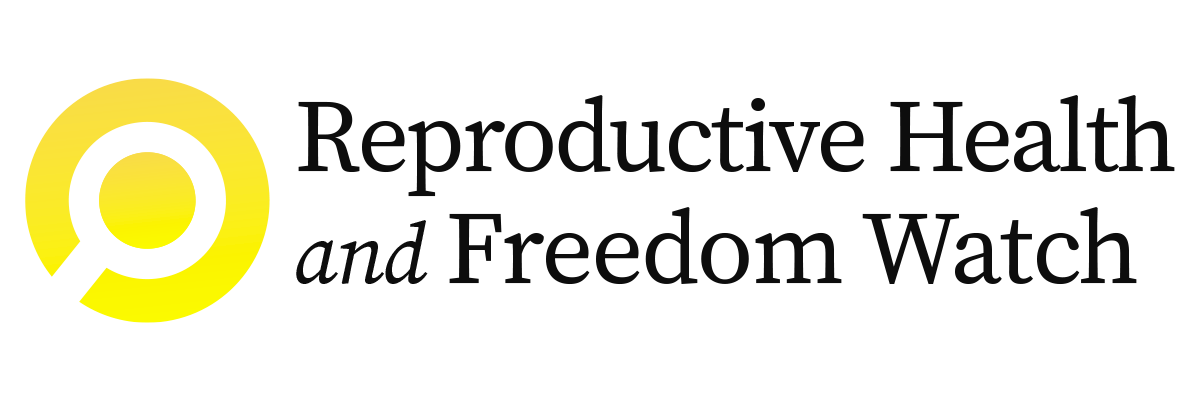
Washington, DC – With only days remaining until the 2024 General Election, The Independent has released a new exposé on the unregulated pregnancy clinic industry — with an estimated 2,528 locations, widely regarded as the backbone of the grassroots pro-life movement in the U.S. The report unveils fresh insights from recent research conducted by Reproductive Health and Freedom Watch that finds the unregulated pregnancy clinic (UPC) industry, often referred to as crisis pregnancy centers/CPCs/pregnancy resource centers, reported revenues exceeding $1.7 billion in 2022, alone. This figure starkly contrasts with industry leaders’ valuations, which estimated the worth of goods and services provided by UPCs at less than $370 million.
Reproductive Health and Freedom Watch’s new analysis of the UPC industry’s staggering annual revenue exposes a sharp increase in funding from both private and taxpayer sources, even as recent UPC industry reports indicate declining demand for UPC services. Between 2019-2022, the UPC industry reported a 45% increase in expenses and a less than 1% increase in new clients.
According to Jenifer McKenna, senior advisor at Reproductive Health and Freedom Watch. “There is overwhelming evidence of financial waste and mismanagement in the UPC industry, and the shocking gap between their massive revenues and the minimal value they claim to provide should set off alarm bells everywhere. As states continue funneling more taxpayer dollars into these organizations—already awash in private funding—Americans have every right to demand answers. Why is public money being handed over, and where is it really going?”
The Independent writes:
- Public money has been flowing into CPCs within the last several years, but “direct taxpayer funding is increasing even faster,” according to exclusive research from Reproductive Health and Freedom Watch (RHFW) in partnership with The Independent. According to their own tax documents, with all government grants combined — which could range from Covid-19 relief to federal and local funds — CPCs have received nearly $1 billion ($976 million) in public funding since 2020. Some of those federal funds were intended to support lower-income families and children. But nearly half of that billion-dollar sum comes directly from state legislatures, which have approved bills to fund anti-abortion clinics.
- Thirty million women are now living under abortion bans and severe restrictions that have magnified the already patchwork state of reproductive healthcare across the country. More than one-third of the US is considered a maternity care desert, where there is not a single birthing facility or obstetric clinician, according to a 2024 report from March of Dimes. States that use public dollars to support CPCs also have some of the highest maternal and infant mortality rates in the US.
- There is often little to no government oversight to justify the spending. In fact, measures to require greater oversight in states like North Carolina have been blocked, leaving much of the industry’s activity shrouded in mystery. The industry has managed to rack up at least $1.7 billion in revenue in 2022 alone, according to RHFW’s review of tax documents.
- Analysis by The Independent and RHFW suggests that in many cases, CPCs are a poor investment for states in terms of the actual goods and services they provide. By the industry’s own admission, revenues are exceeding the estimated value of services that CPCs provide by more than 380 percent. CPCs provided $367 million in goods and services in 2022 — including pregnancy tests, ultrasounds, and STI testing — according to anti-abortion think tank the Charlotte Lozier Institute. That makes up just one-fifth of revenues, under conservative projections, and 24 percent of expenditures. It is unclear exactly how the costs of goods and services are measured.
- Some CPCs have been “rebranding,” or transitioning away from religious messaging towards a decidedly secular and medical image — despite the fact that a vast majority of CPCs do not employ medical professionals. Thirty-seven percent of CPCs have changed or operated under multiple names between 2019 and 2022, according to RHFW. Clinic names often rely on explicitly religious and anti-abortion language — from Choices of the Heart, Birthright, and A Baby’s Breath to His Love Family Resources and Catholic Family Services. Yet others are more generic: Pregnancy Resources, Pregnancy Resource Connection, A Women’s Care Center, Options Medical Clinic, Cornerstone Reproductive Health. Clinic names have been changed to become increasingly “medicalized,” according to RHFW.
Read the full story here and read Reproductive Health and Freedom Watch’s analysis here.
